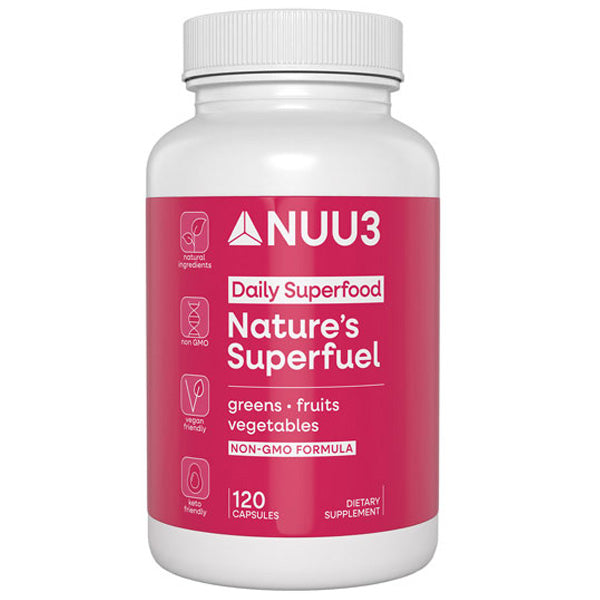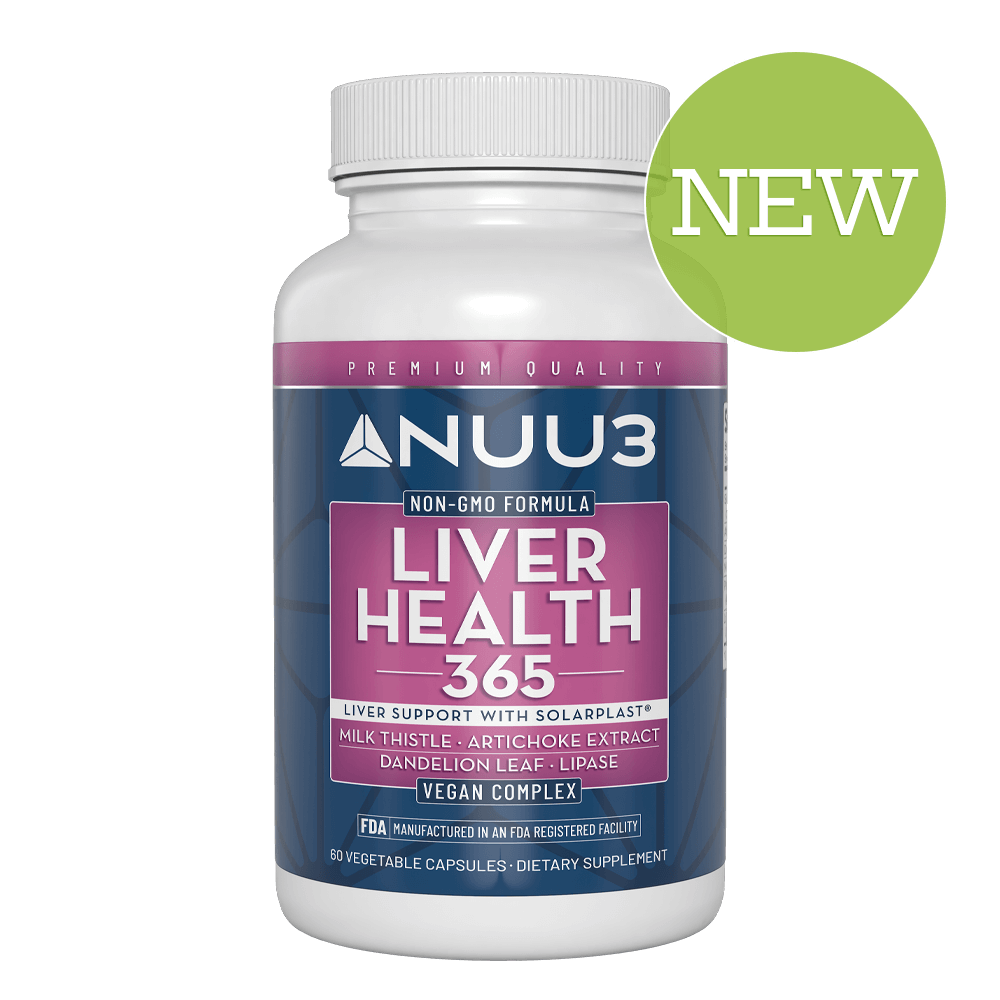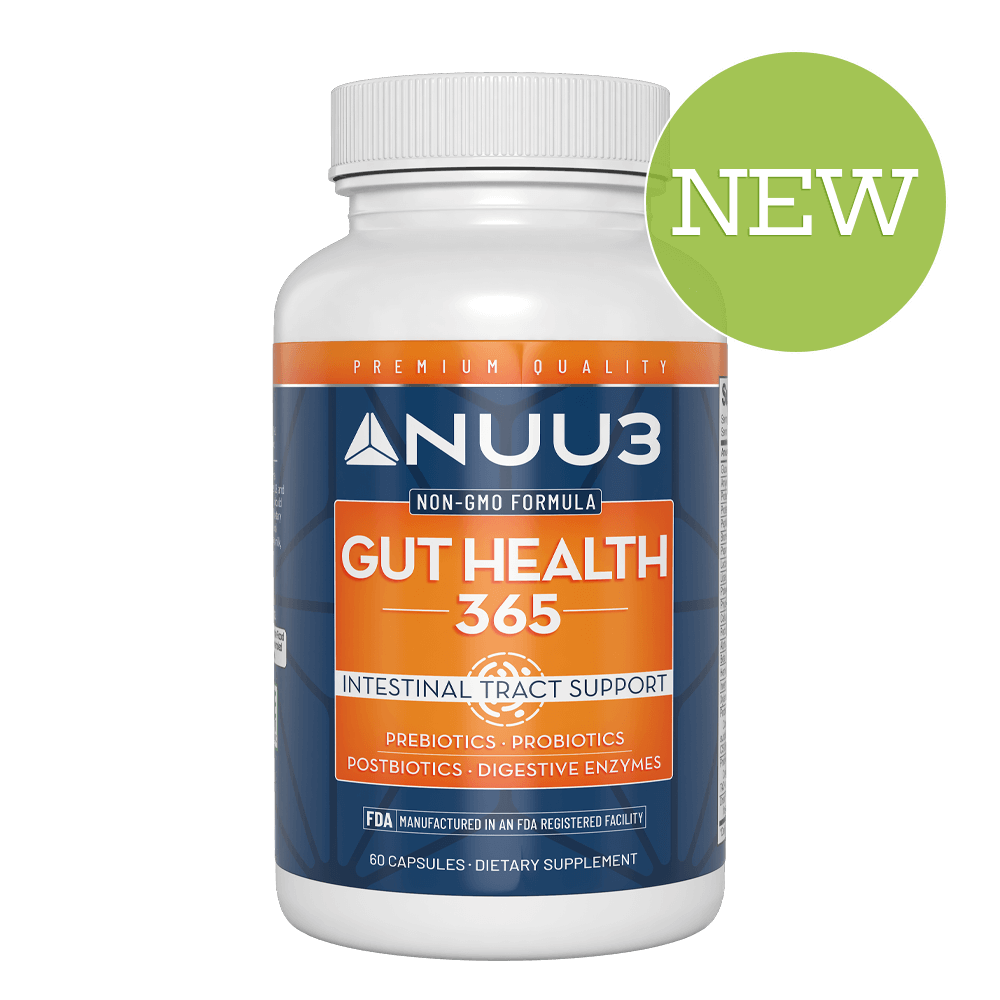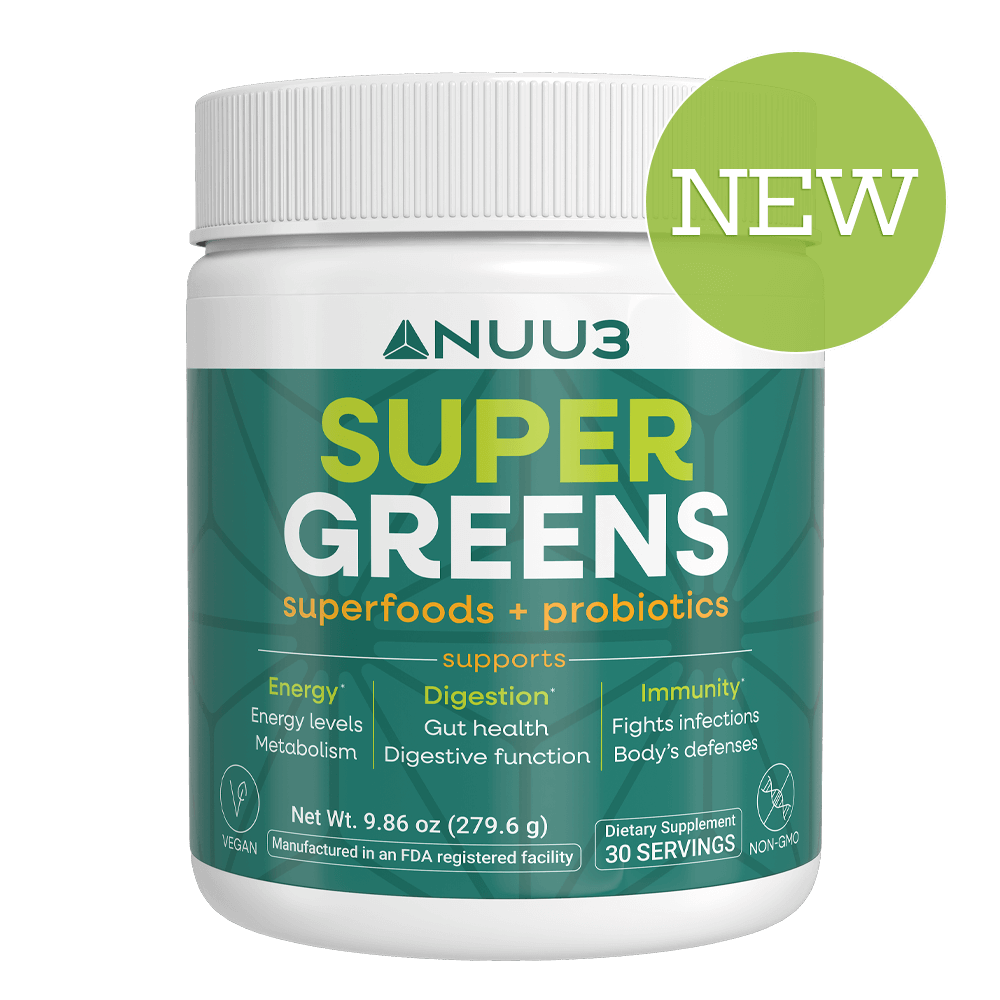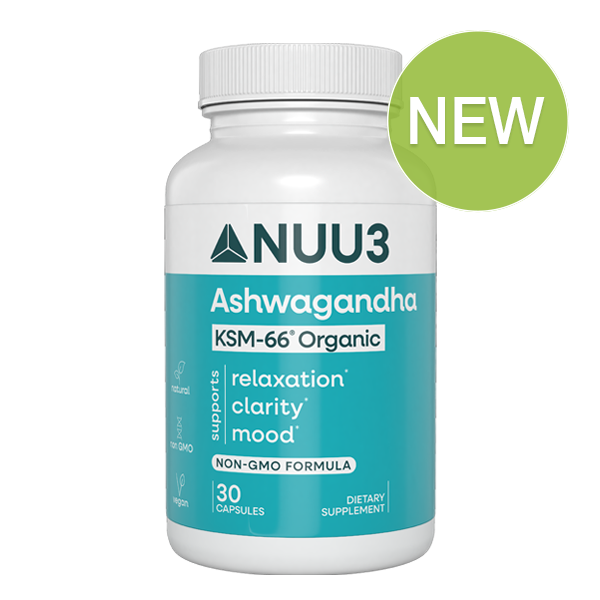Gut Healing Diet: A Step-by-Step Guide to Heal Your Gut
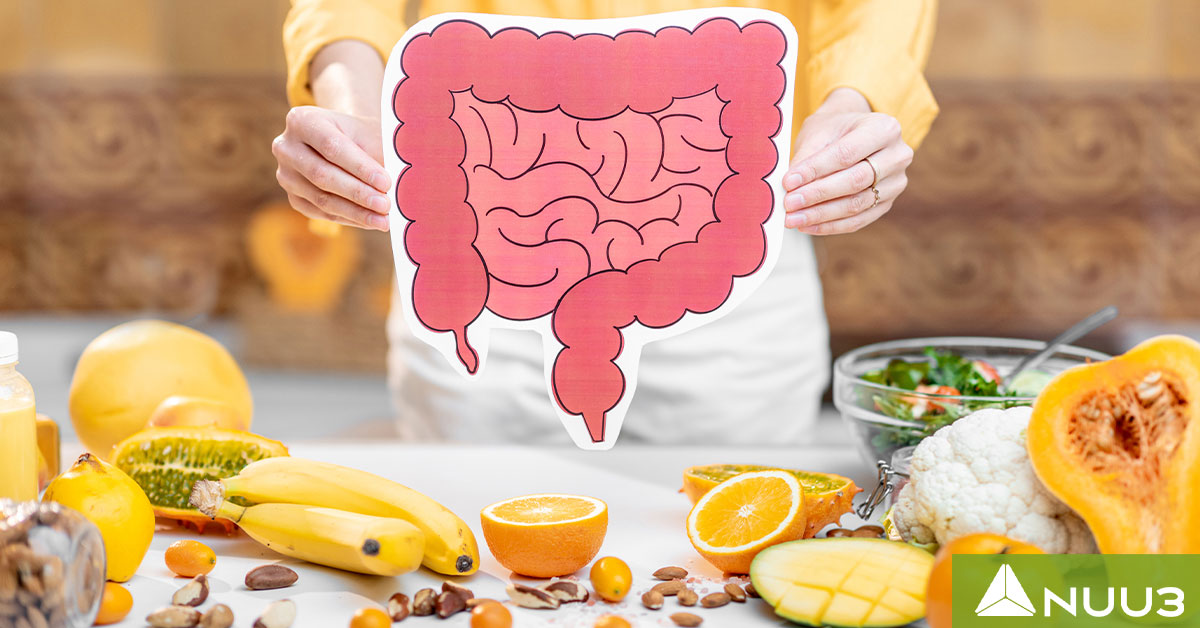
When you eat something, your digestive system needs to digest it. As the food moves through your gut, nutrients and water are absorbed, leaving behind only waste. However, there are cases where your gut may not function as it should. Gut health problems are quite common and can be both painful and uncomfortable. With a gut healing diet, though, you can improve the health of your digestive system and feel more comfortable. In this article, we’ll take a look at the foods you should eat to take better care of your gut.
Why do you Need to Heal your Gut?
Your gut is incredibly important for ensuring you get access to the nutrients[1] your body needs to survive. Proteins, carbs, fats, vitamins, and minerals - these are things that your body depends on at a cellular level.
When your gut health is poor, it means your digestive system can’t properly extract the right nutrients from the foods you eat. This can lead to nutritional deficiencies, something that can have a major impact on your overall health.
Is Everyone’s Gut Health Different?
Everyone’s gut health is quite different. This is because of the microbiome - a name that is used to describe bacteria living and thriving in your digestive system. There are some similarities in the gut microbiome among people, but everyone still has unique variations in terms of the specific bacteria that live in their gut and how many of each are there.
What are Common Gut Health Problems?
When you’ve got problems with your gut, you may notice several symptoms. Some of these problems are more common than others.
Here’s a list of the most common gut health problems that people tend to experience:
-
GERD (Gastrointestinal Reflux Disease)
-
An upset stomach
-
Nausea
-
Stomach pain
-
Changes to bowel movement (constipation or diarrhea)
-
Celiac disease
-
Irritable bowel syndrome
-
Ulcerative colitis
What Causes poor Gut Health?
Understanding what can cause poor gut health is an important step in healing your digestive system. Here are some of the most common reasons:
-
Diet triggers: What you eat can have a big impact on your gut health. If you regularly eat processed foods[2], sugar, gluten, and fatty foods, then you’re more likely to experience poor gut health. Drinking too much alcohol is also a dietary factor that can trigger gut problems.
-
Changes in the microbiome: You have good bacteria living inside your gut. The balance between good and bad bacteria plays a role in gut health. When there’s a chance, such as while you’re using an antibiotic, it can trigger certain problems with your gut.
-
Stomach infection: An infection in your stomach means there are bad bacteria that have infected tissue. This causes a change in your microbiome, where bad bacteria start to invade areas where your good bacteria need to thrive.
-
Excessive exercise: This potential cause is often overlooked, but if you exercise too much and push yourself past your limits, then this can become a possible cause for poor gut health.
-
Low vitamin D: Sometimes coined the sunshine vitamin, vitamin D is critical for some functions in your body. In the gut, vitamin D plays a role in maintaining the mucosal barrier’s structure. When you’re low on vitamin D, it means bad bacteria may find more opportunities to invade your gut.
-
Food additives: A lot of food that we buy today have additives. There are different kinds of additives - and you should be on the lookout for them. Try to steer clear of things like artificial coloring, Polysorbate 80, aspartame, and sucralose.
-
Smoking: Smoking is also something that can impact your gut. Even though you draw smoke into your lungs, the toxins in cigarettes enter your bloodstream. They can cause damage to the gut microbiota.
-
Obesity: If you’re obese, then you’ll generally have a less healthy microbiome compared to someone who is at a healthy weight. Obesity also puts extra pressure on organs and your gut, which can further contribute to digestive problems.
-
Not enough fiber in your diet: If you don’t get enough fiber, then you’ll likely start to notice problems like bloating, stomach upset, and abdominal pain.
-
Stress: While stress is something that affects your mind, you need to understand it also has an impact on your physical health. Stress releases cortisol, which can contribute to inflammation (especially when you’ve got chronic stress).
Steps to Take if you Want to Heal your Gut
We should now take a closer look at how you can heal your gut. We’ll consider what foods you should include in a gut-healing diet later on, but for now, let’s take a look at some important steps that you should take.
First, analyze your current gut health. Take a look at what you’re eating and consider whether you’re at risk (look at the causes we talked about).
It’s a good idea to consider some gut health supplements at this point. These supplements can give you a long-term solution to improving your gut health but also help to offer relief of symptoms in the shorter term.
There are a couple of supplements that can be helpful. Nuu3 Gut Health 365, however, is currently one of the best options. This supplement was made to improve the amount of good bacteria that grows in your gut. It also helps to detoxify your gut, relieves bloating, and gives you more energy.
If you want an option that offers a more comprehensive health solution, then consider UltraFuel Plus (NUU3 ACV Gummies + NUU3 Nature’s Superfuel). The apple cider vinegar supplement helps to improve your gut microbiome. Nature’s Superfuel gives you access to a diverse range of plant-based ingredients and extracts. The supplement optimizes your immune system, supports your heart, and makes your digestive system work more efficiently.
Apart from supplements, you might also want to consider focusing on things like sleep, exercise, and stress management. These things can go a long way in starting the healing process.
What to Expect
As your gut starts to heal, you can expect to notice improvements in your symptoms. At first, bloating should become less noticeable. You may find that you don’t have as much gas, and abdominal discomfort becomes a thing of the past.
Over time, you should find that you have more energy and you experience fewer infections. That’s because your body now gets access to the right nutrients to function properly, and your immune system can effectively fight against diseases.
The Best Foods to Include in your Gut Healing Diet
Now that you have a better idea of how you can begin healing your gut, it’s time that we consider what foods you should include in your diet. Remember that a gut-healing diet focuses on repairing your digestive system and bringing it back to optimal function.
Here are some of the best foods you can use for good gut health:
-
Kefir: A kind of yogurt drink that’s often considered to be one of the best probiotics for gut health. Kefir contains a lot of beneficial bacteria[3] that improve your gut microbiome.
-
Nuts: Most nuts, such as almonds, contain healthy fatty acids, as well as fiber. When you eat enough fiber, it helps to keep you feeling full and also improves your digestive system.
-
Kombucha: This is another great food option for increasing the amount of good bacteria that live in your gut. Kombucha comes in a variety of flavors, so you have a lot of variety to choose from.
-
Bananas: You should also load up on bananas. This fruit is filling, and it also contains a type of fiber that beneficial bacteria need to thrive.
-
Ginger: When it comes to soothing an upset stomach and taking care of nausea, ginger is one of the most potent natural remedies. Ginger helps to ensure food continues to move throughout your gastrointestinal tract.
-
Garlic: The antibacterial properties of garlic allow you to ensure harmful bacteria are kept in check. Garlic also offers antifungal properties, and it can quickly add flavor to your dishes.
-
Olive oil: This type of oil is filled with both polyphenols and fatty acids. Both of these compounds are important when it comes to the good bacteria in your gut.
-
Sourdough: Breads and several other baked goods can be made from sourdough. It’s a type of fermented dough that is easier for your body to digest compared to regular bread. The slow-releasing carbs in sourdough also provide sustainable energy throughout the day.
-
Yogurt: Plain yogurt, sometimes also referred to as Greek yogurt, is another excellent choice for your gut-healing diet. Yogurt is easily accessible and truly diverse.
What Foods can Cause Poor Gut Health?
We’ve looked at some of the best foods you can add to your diet to heal your gut. Now, let’s turn our focus to the worst foods for gut health - these are the things you should try to remove from your diet. It’s not always possible to completely avoid these things, but you should at least limit your consumption of them.
-
Raw vegetables: Veggies are healthy, but if you eat them raw, your digestive system can’t properly digest some of the tougher fiber - specifically, the cellulose, in the vegetables. This can irritate your gut as the compounds that are not broken down move through your digestive system.
-
Gluten: If you’ve got food intolerances, then it’s important to consider avoiding gluten. This is especially important if you have celiac disease.
-
Sugar: Another thing to avoid is sugar[4]. While something sweet now and then isn’t usually a problem, eating too much sugar can disrupt your digestive system and even cause fluctuations in your blood glucose levels.
-
Artificial sweeteners: It has been found that artificial sweeteners can cause changes to your gut microbiome. Disruptions in your microbiome can contribute to gut health problems.
Gut healing diet FAQs
What are the symptoms of an unhealthy gut?
There are a couple of ways to tell when you’ve got an unhealthy gut. Watch out for signs like an upset stomach, fatigue, food intolerances, and unexpected changes to your weight.
Is apple cider vinegar good for gut health?
Apple cider vinegar can be a great addition to your life if you want to improve your gut health. However, it’s important to carefully follow the instructions that the package of the product you use provides.
Does fasting help gut health?
It’s possible for fasting to help since it activates a process called autophagy. It’s important to choose a good fasting plan and not to go without food for too long, though.
Key Takeaway
Your gut is incredibly important and allows your body to process the foods and liquids that you consume. If you don’t take proper care of your gut, then you can develop certain problems. These issues can lead to abdominal pain, discomfort, and even changes to your weight. Luckily, there are a couple of things you can do to improve your gastrointestinal tract, such as following a gut-healing diet.
References
1] ↑ https://www.ncbi.nlm.nih.gov/pmc/articles/PMC3601187
2] ↑ https://www.ncbi.nlm.nih.gov/pmc/articles/PMC9589409/
3] ↑ https://www.ncbi.nlm.nih.gov/pmc/articles/PMC8226494/
4] ↑ https://www.ncbi.nlm.nih.gov/pmc/articles/PMC9471313/



